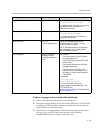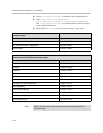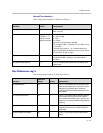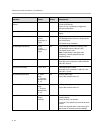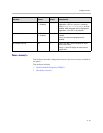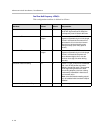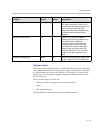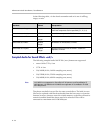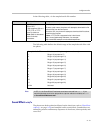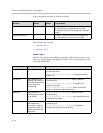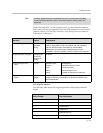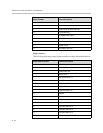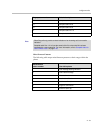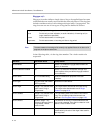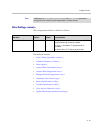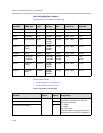
Configuration Files
A - 31
In the following table, x is the sampled audio file number.
The following table defines the default usage of the sampled audio files with
the phone:
Sound Effects <se/>
The phone uses both synthesized (based on the chord-sets, refer to Chord-Sets
<chord/> on page A-29) and sampled audio sound effects. Sound effects are
defined by patterns: rudimentary sequences of chord-sets, silence periods, and
wave files.
Attribute Permitted Values Interpretation
saf.x Null OR valid path name
OR an RFC
1738-compliant URL to a
HTTP, FTP, or TFTP
wave file resource.
Note: Refer to the above
wave file format
restrictions.
If Null, the phone will use a built-in file.
If set to a path name, the phone will attempt to download this file
at boot time from the boot server.
If set to a URL, the phone will attempt to download this file at boot
time from the Internet.
Note: A TFTP URL is expected to be in the format:
tftp://<host>/[pathname]<filename>, for example:
tftp://somehost.example.com/sounds/example.wav .
Sampled Audio File Default use within phone (pattern reference)
1 Ringer 12 (se.pat.misc.7)
2 Ringer 13 (se.pat.ringer.13)
3 Ringer 14 (se.pat.ringer.14)
4 Ringer 15 (se.pat.ringer.15)
5 Ringer 16 (se.pat.ringer.16)
6 Ringer 17 (se.pat.ringer.17)
7 Ringer 18 (se.pat.ringer.18)
8 Ringer 19 (se.pat.ringer.19)
9 Ringer 20 (se.pat.ringer.20)
10 Ringer 21 (se.pat.ringer.21)
11 Ringer 22 (se.pat.ringer.22)
12-24 Not used.
Note
In SIP 3.1, the SoundPoint IP welcome sound was removed from
saf.1
. If you
want the welcome sound to be played when a phone reboots or restarts, set
saf.1
to SoundPointIPWelcome.wav .



